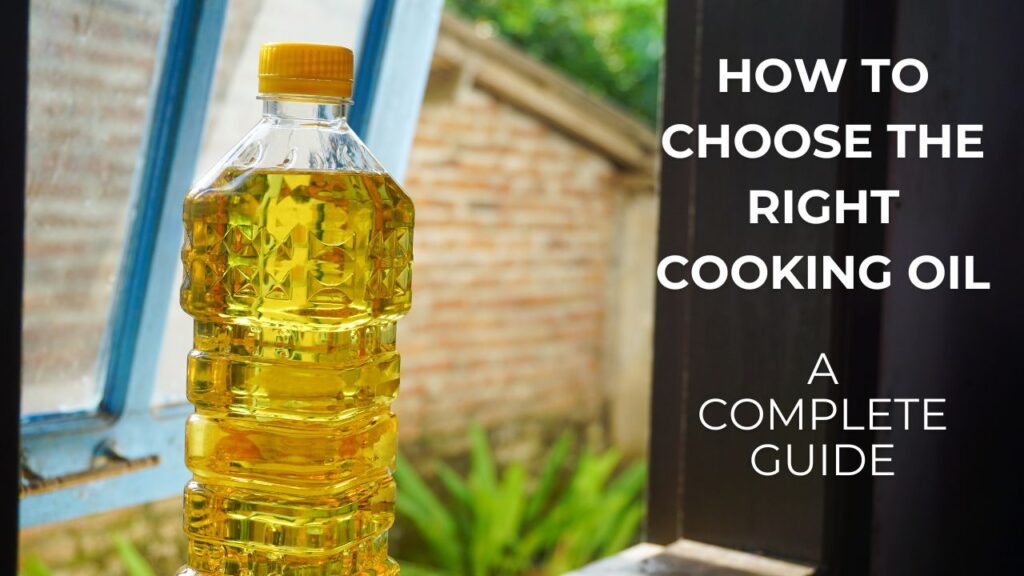
When was the last time you stood in the cooking oil aisle at the grocery store, overwhelmed by the sheer variety? Olive oil, canola oil, avocado oil, sunflower oil—each has its promises and pitfalls. How do you choose the right cooking oil for your health, flavor, and cooking style? It’s not as daunting as it seems! With this guide, you’ll become a pro at picking the perfect oil for any situation.
Let’s break it down step-by-step.
Understanding Different Types of Cooking Oils
Cooking oils come in all shapes and sizes—figuratively speaking. Each type has a unique flavor profile, smoke point, and nutritional benefit. Here’s a closer look at some popular options.
1. Olive Oil
A pantry hero, olive oil is known for its heart-healthy properties thanks to its high monounsaturated fat content. It’s perfect for salad dressings, low-heat sautéing, and dips.
2. Coconut Oil
With a distinct tropical flavor, coconut oil works well for baking and high-heat cooking. It’s rich in saturated fats, so moderation is key if you’re watching cholesterol levels.
3. Avocado Oil
Avocado oil is a multitasker; its high smoke point makes it excellent for frying, roasting, and grilling, while its mild taste is great for dressings.
4. Vegetable Oil
Often a blend of different oils, vegetable oil is affordable and neutral-tasting. It’s versatile but often lacks the health benefits of single-origin oils like olive or avocado.

5. Sunflower Oil
Packed with vitamin E, sunflower oil is great for high-heat cooking like frying. Its neutral flavor also makes it a good baking option.
Refined vs. Unrefined Oils
Refined oils are processed for a higher smoke point and neutral flavor, while unrefined oils retain more nutrients and flavor but can’t handle as much heat. Think of it like choosing between raw and roasted nuts—each has its place.
Organic vs. Non-Organic
Organic oils are free from synthetic pesticides and additives. If you prioritize clean eating, organic might be the way to go.
Health Benefits of Cooking Oils
You’ve probably heard that some oils are “healthy fats.” But what does that mean? Here’s what you need to know about choosing oils that match your health goals.
Cooking Oils for Heart Health
If heart health is your priority, oils like olive, avocado, and almond stand out due to their monounsaturated fats, which can help lower bad cholesterol (LDL).
Oils for Weight Loss
When managing weight, focus on oils that are rich in healthy fats but low in saturated fats. Olive oil and canola oil are great choices.
Cholesterol Management
To keep cholesterol in check, avoid oils high in saturated fats (like palm and coconut oil) and opt for oils like safflower, flaxseed, or sunflower.
Cold-Pressed Benefits
Cold-pressed oils retain more nutrients because they aren’t exposed to heat during processing. They’re ideal for raw applications like salads and dips.
Cooking Oil Smoke Points and Applications
Ever tried cooking with the wrong oil and wound up with a smoky kitchen? That’s because every oil has a “smoke point”—the temperature where it starts to burn and degrade.
| Oil | Smoke Point | Best Uses |
|---|---|---|
| Olive Oil (Extra Virgin) | 375°F | Drizzling, salad dressings |
| Avocado Oil | Up to 520°F | High-heat frying, grilling |
| Coconut Oil (Unrefined) | 350°F | Baking, light sautéing |
| Canola Oil | 400°F | Stir-frying, baking |
| Sunflower Oil | 450°F | Deep frying, searing |
Tip: Choose an oil with a smoke point that matches your cooking method. For frying, go for oils like avocado or sunflower. For baking, you can opt for coconut or canola.

Choosing the Right Oil for Specific Uses
What’s on the menu? Here’s how to pair the right oil with the right dish.
- For Baking: Need a neutral-tasting oil? Go for vegetable or canola oil. Coconut oil works if you’re after a touch of sweetness.
- For Salad Dressings: Extra virgin olive oil is a classic choice, but try walnut or sesame oil for a nutty twist.
- For Sautéing and Stir-Frying: Light olive oil and avocado oil are excellent due to their ability to withstand medium to high heat.
Most Versatile Oil
If you want one oil that can do it all, avocado oil is a safe bet. Its mild flavor and high smoke point make it suitable for everything from grilling to desserts.
Comparing Popular Cooking Oils
Sometimes, two oils seem so similar that it’s hard to choose. Here’s how they stack up.
Olive Oil vs. Vegetable Oil
Olive oil is healthier and richer in flavor but pricier. Vegetable oil is cheap and versatile but lacks the same heart-health benefits.
Sunflower Oil vs. Canola Oil
Sunflower oil works better for frying due to its higher smoke point, while canola oil is better for baking or light cooking because of its neutral profile.
FAQs
How do I store cooking oils to extend their shelf life?
Keep oils in a cool, dark place, and opt for darker bottles to protect them from light. Refrigerate oils like flaxseed or walnut to prevent rancidity.
What are healthy substitutes for traditional cooking oils?
Try applesauce in baking to cut down on fat, or use broth for sautéing instead of oil.
Can I reuse frying oil?
You can, but only a few times. Strain it after use and store it in a clean container. Discard if it smells off.
How do I know if cooking oil has gone bad?
Rancid oil smells sour or soapy. If it tastes unpleasant, throw it out—don’t chance it!
Are certain oils better for specific diets?
Yes! Keto dieters often prefer oils high in saturated fats like coconut oil, while vegans might lean toward flaxseed oil for its omega-3 content.
Conclusion
Choosing the right cooking oil doesn’t have to be overwhelming. Focus on your priorities—whether it’s health, flavor, cost, or versatility. While heart-healthy olive oil might be your go-to for salads, high-heat avocado oil could be perfect for frying. Don’t be afraid to experiment! Over time, you’ll discover which oils fit your taste and lifestyle.
Got any favorites? Share them in the comments or ask your burning questions below!

